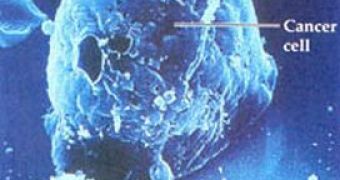Sometimes better is more than bigger.
And not only in sex, but in sexual transmitted maladies, too.
Like AIDS.
This is what a research on the development of a vaccine against HIV has discovered.
"Conventional medical wisdom tells us that the bigger the immune response, the more effective it will be in controlling HIV," says Professor Philip Goulder, a Wellcome Trust Senior Research Fellow in Clinical Science at the University of Oxford. "However, our study suggests that this might not be the case. While most of the immune responses generated against HIV appear to be ineffective, responses targeting one particular HIV protein can bring about control of the virus."
Roughly 40 million people are infected with HIV worldwide, killing 3 million annually. The virus was first identified in 1981, but till now a vaccine has not been found. The virus incubates in so-called "helper T-cells", a white cells category. T cells are a main actor in the immune response of the body to fight infection. There are a number of different types of T cells, each with a different role.
Helper T-cells (HTCs) tune the body's immune response and the loss of these cells triggers the development of AIDS. Another type of T cell, the cytotoxic T cell (CTC), recognizes and attacks infected HTCs.
Previously, researchers believed that the bigger the CTC response, the more effective it would be and this concept biased the research on the development of HIV vaccines. But the team found that the type of CTC response is crucial and that some types of responses may have a negative effect and could actually harm the immune response.
The research team monitored the immune responses against HIV in nearly 580 HIV-infected people in KwaZulu-Natal. "Some of the CTCs attack so-called 'Gag' proteins within the HIV virus, whilst others attack proteins such as the 'Env' protein on its surface," said Goulder.
"In our study group, it seems that the higher the response to the Gag proteins, the more effective the immune system was at fighting infection. However, for reasons that are unclear, the opposite was true for responses to the Env proteins, where a stronger response was associated with a higher viral load -- in other words, worse control of HIV."
"There seems to be clear evidence that 'Gag is good". "This means that rather than developing a vaccine with a spectrum of CTC responses, we may need to look at a more targeted vaccine."

 14 DAY TRIAL //
14 DAY TRIAL //